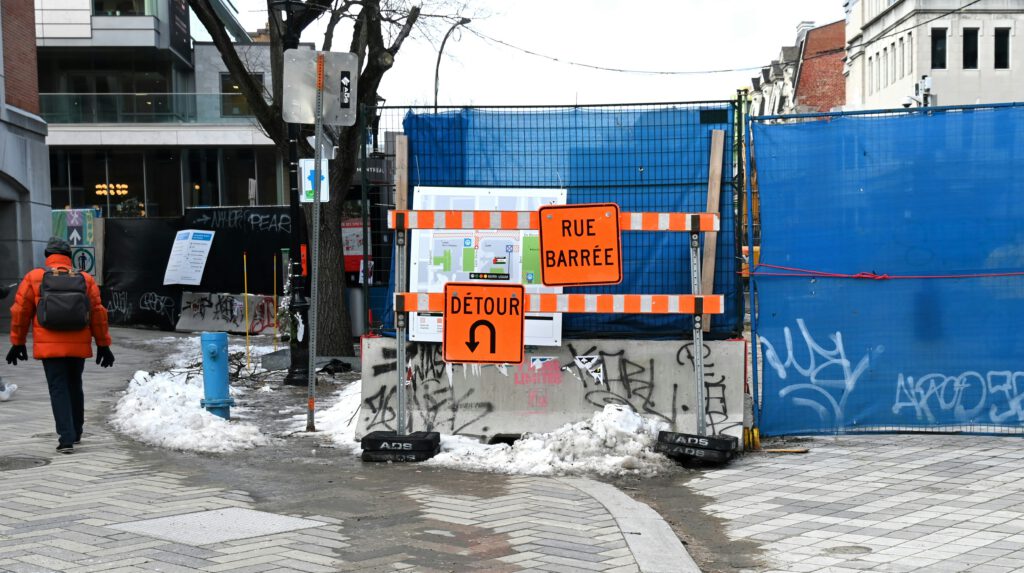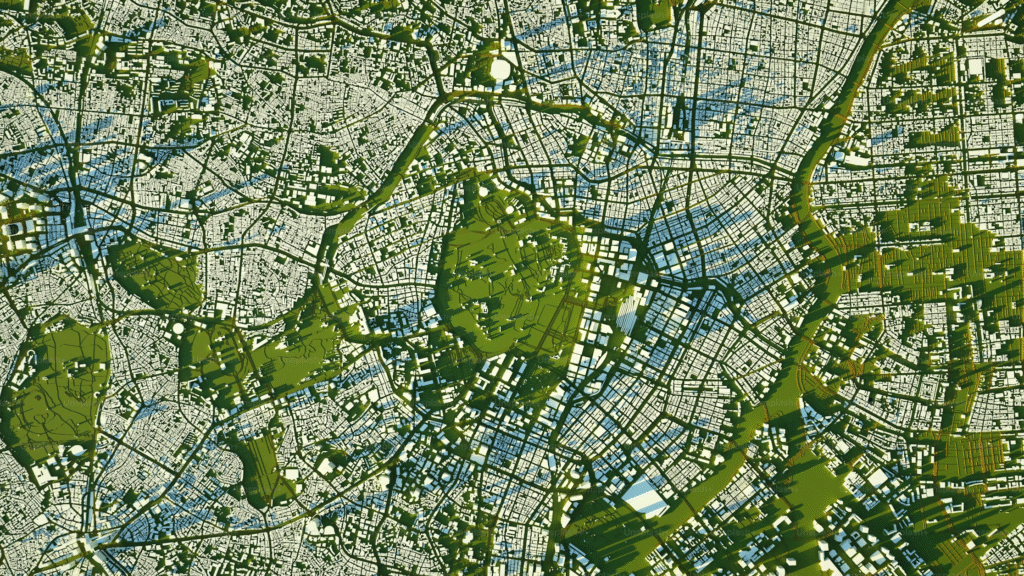Most buyers in Quebec, especially first-timers, drastically underestimate the actual cash that they need to buy a home. That’s because closing costs are spread out over time and often hidden behind paperwork, inspections and taxes.
In these situations, it is not uncommon for buyers to discover late in the process that they need thousands more for things like notary fees, welcome tax, adjustments, or insurance. When that happens, the shortfall can lead to stressful last minute borrowing, high interest payday loans or even missed first mortgage payments.
To help plan correctly, we have created a closing cost calculator for buyers, that you can use for free.
Buyer’s Tip: How to Save an Average of $5,000 on Your Closing Costs
Buyers Closing Cost Calculator Quebec
Welcome Tax Calculator
What are closing costs?
Closing costs are all the one time expenses you need to pay when you buy a property. These costs are in addition to your down payment. Closing costs include the legal, administrative and government fees required to officially transfer ownership from the seller to you.
Closing costs usually add up to between 3% and 5% of the purchase price and they are paid around the time you close. The table below shows how much you will need to pay for homes of different prices. For example, 5% on a property worth $450,000 is $22,500.
| Example Property Price | Estimated Closing Costs (3%) | Estimated Closing Costs (5%) |
|---|---|---|
| $350,000 | $10,500 | $17,500 |
| $400,000 | $12,000 | $20,000 |
| $450,000 | $13,500 | $22,500 |
| $500,000 | $15,000 | $25,000 |
As you can see, these are not insignificant amounts. So what exactly are you paying tens thousands of dollars in closing costs for?
What is typically included in closing costs?
The buyers closing costs in quebec typically include the following:
- Property inspection
- Notary
- Land transfer tax
- Moving fees
- Appraisal fee
- Title insurance
- Latent defect insurance
Not all of the closing costs listed here are mandatory. The best realtors in Montreal will be able to help you avoid overpaying, by advising you which costs are really necessary for your particular situation.
Furthermore, certain closing costs can be recovered through government programs. For example, the land transfer tax, also called the “welcome tax” can be claimed back through the Home Purchase Assistance Program.
In the rest of this section, we explain what each of the closing costs listed above is, and when in the process of buying a home you need to pay them.
Property inspection
Average cost: $800 - $1300
A property inspection (often called a home inspection) is an independent evaluation of a home’s physical condition, carried out before you finalize the purchase.
While not mandatory, inspections are strongly recommended. This is because they are often the only real leverage you’ll have if you move in and later discover an expensive problem that should have been identified earlier.
For instance, when you submit your Promise to Purchase (offer), your real estate broker should advise you to include specific protective clauses for example:
“This offer is conditional upon the property passing an inspection and upon the buyer obtaining financing at a rate of X%.”
These conditions are essential because the Promise to Purchase is a legally binding contract. Without them, you could be obligated to buy the property even if a major issue is discovered or your financing falls through.
In addition, you should never rely solely on a seller’s pre-listing inspection. You don’t know who performed it, what standards they followed, or whether the report was biased. More importantly, you have no legal relationship with the seller’s inspector, meaning no recourse if something critical was missed.
By hiring your own certified inspector, you protect yourself. If a major defect is overlooked, you’ll have legal recourse and proof that you took reasonable steps to verify the property’s condition.
💡 Buyer’s Tip:
Notary
Average cost: $1,700 - $2,800
From the buyer’s perspective, the notary is your legal safeguard. Their first job is to make sure the person selling the property has the legal right to do so. They do this by verifying the title, checking for unpaid taxes or mortgages, and ensuring the property is free of any legal claims or encumbrances.
Once these checks are complete, the notary prepares the key legal documents, including the Deed of Sale and, if needed, the Deed of Hypothec (your mortgage contract). They also coordinate with your lender to receive the mortgage funds and hold them safely in trust until the transaction closes.
Next, the notary calculates adjustments between buyer and seller, things like prepaid property taxes or condo fees and then arranges the final signing appointment. Once both parties have signed, the notary registers the sale in the Quebec Land Register, transfers the funds to the seller, and provides you with certified copies of the deeds.
At that point, the process is complete and the keys are officially yours.
Buyer’s Tip: Avoid Hidden Notary Fees
Adjustments & reimbursements
Average cost: It depends on the property and time of year.
Adjustments are reimbursements between the buyer and seller for any prepaid costs (like municipal taxes, condo fees or special assessments). The notary calculates these at closing to make sure each party pays their fair share based on the possession date.
For example, let’s say you’re buying a condo and the seller has already paid the municipal taxes for the next six months, but your move-in date is one month away. In that case, the seller may ask you to reimburse the remaining five months of prepaid taxes, since you’ll benefit from that period of ownership.
These adjustments typically range from a few hundred to a few thousand dollars, depending on the property and the time of year.
Land transfer tax
Average cost: It depends on the size of your property.
In Quebec, the “welcome tax” is the nickname people use for the Land Transfer Tax (taxe de mutation immobilière in French).
The Land Transfer Tax is a municipal tax that you pay when you buy a property. The municipalities in Quebec then use this money to fund local infrastructure and services such as road repairs, public transit, parks, libraries, and emergency services.
The way that Land Transfer Tax is calculated is explained on the official website of the City of Montréal (Ville de Montréal), on the page How property transfer duties are calculated. At a high level, the tax is calculated in brackets, meaning that different portions of your property’s value are taxed at different rates. The higher the price, the higher the rate on the upper portion.
Whilst each municipality is allowed to set their own rates, the grid below shows what the average rate is for different price brackets.

The amount that you have to pay is due within 90 days of purchase. It will be sent to your new house as an invoice that you can pay either by going into a local bank or online.
For first time buyers with a child, it is possible to claim the welcome tax back through the Home Purchase Assistance Program. The easiest way to do this is to physically go to the office in Montreal @ 155, Notre-Dame East Montreal (Quebec) H2Y 1B5, which is open between 8.30am - 4.00pm each week on Thursdays. The staff there will help you fill out the forms.
Card Title
Moving costs
Average cost: $750 - $1,500
Buying a new home comes with all the moving expenses that follow boxes, packing supplies, transportation, and sometimes storage. Even after you’ve signed at the notary, you’ll still need to budget for the physical move itself.
If you have large furniture, small children, or a busy family schedule, hiring professional movers can be a worthwhile investment. They can handle heavy lifting, reduce stress, and often include basic insurance for your belongings during transport.
You can compare and book movers easily on platforms like MovingWaldo, Yelp, or Kijiji, where you can read reviews and request quotes from multiple companies in just a few minutes.
Appraisal fee
Average cost: Depends on the size of the property.
A home appraisal is an unbiased, professional evaluation of a property's current market value conducted by a licensed or certified appraiser. Lenders usually require this before signing off on your mortgage since a home appraisal establishes that the home you’re buying is worth the offer you made.
There are two ways to order an appraisal:
- Lender orders an appraisal (most common)
- Buyer orders an appraisal
In most transactions, the buyer never personally orders or even sees the appraisal. Your bank or mortgage lender hires a certified appraiser to confirm that the property’s market value supports the loan amount. The bank will most likely not even charge you for the appraisal.
If you want to double-check the price independently for example, in a private sale, a cash purchase, or to challenge an asking price you can hire your own appraiser. This is less common but gives you visibility into the report.
Title insurance
Average cost: $500 - $12,000
When you buy a home, your notary conducts a title search through the Registre foncier du Québec (Quebec Land Register) to confirm that the seller legally owns the property, that it’s free of unpaid debts, and that there are no hidden legal claims. All of this information is summarized in the property title, also known as the Index of Immovables.
Title insurance is an optional one-time protection that covers you and your lender against unexpected problems with the property title. These are things the notary might not have been able to detect during their search. These could include clerical or registration errors in the land registry, unpaid liens from a previous owner, boundary disputes, or even fraud or forgery where someone illegally claims ownership.
In Quebec’s civil law system, the notary is legally responsible for verifying ownership, disclosing servitudes, and ensuring there are no outstanding debts on the property. Because of this, most lenders don’t require title insurance and instead rely on the notary’s verification to protect their interests.
Many notaries consider title insurance optional and only recommend it in specific situations for example, when the property has an unclear ownership history, when renovations or additions weren’t properly registered, or when it’s located on a private road or rural lot with servitudes.
If your notary reviewed the Registre foncier and found everything in order, they likely didn’t suggest title insurance and that’s perfectly normal in Quebec.
Latent defect insurance
Average cost: $350–$600 (optional, purchased before or at closing).
A latent defect (or vice caché) is a hidden problem with a property that isn’t visible during a normal inspection and that significantly reduces its value or use. Examples might include water infiltration behind walls, foundation cracks, electrical faults, or mold hidden in the structure.
In Quebec, the Civil Code gives buyers the right to take legal action against the seller if such a defect existed before the sale and the seller failed to disclose it. However, these cases can be complex, stressful, and expensive often taking months or years to resolve.
Latent defect insurance is an optional policy that helps protect you from the financial fallout of discovering a hidden issue after you move in. It can cover the cost of repairs or reimburse part of your loss if a serious defect is found and confirmed by an expert.
💡 Buyer’s Tip
How to manage closing costs?
To manage your closing costs, we recommend that you create a spreadsheet in either Excel or Google Sheets. The sheet should look something like the following:
Enter into the top left of the spreadsheet your current savings (cash at bank).
Once you have done this, enter your expected closing costs for each of the items on the list and then add these up. Leave a buffer of about 2% for any unexpected closing costs. If you are not sure if you will need to factor in title insurance, a property appraisal or latent defect insurance, speak with your realtor.
Buyers Tip
Conclusion: Don't let closing costs catch you off guard
Buying a home in Quebec is exciting, but it’s also full of hidden expenses that can quietly add up to tens of thousands of dollars. The good news? Most buyers overpay simply because they don’t know what can be negotiated, refunded, or covered by government programs.
Use our closing calculator as your starting point, but don’t stop there. The real savings come from knowing which costs can be reduced, delayed, or even reimbursed and that depends on your city, property type, and whether you qualify for certain government schemes.
👉 Here’s the part most buyers don’t realize: with the right guidance, it’s often possible to cut your effective closing costs by 5–10%, without changing your offer price.
If you’d like to see how much you could save (and which rebates or brokerage perks you qualify for), our team can connect you with a local expert who specializes in closing cost optimization.
Need an expert?
The rules around these government incentives can be confusing, and many buyers miss out simply because they don’t know they exist.
Our team can connect you with a verified local real-estate broker who understands which rebates and programs apply in your city — and how to make sure you don’t leave money on the table.
Speak with an agent today — it’s free, and they’ll help you find out if you qualify for welcome tax refunds or other homebuyer incentives.
Or dial XXX to speak with one of our customer service representatives.




